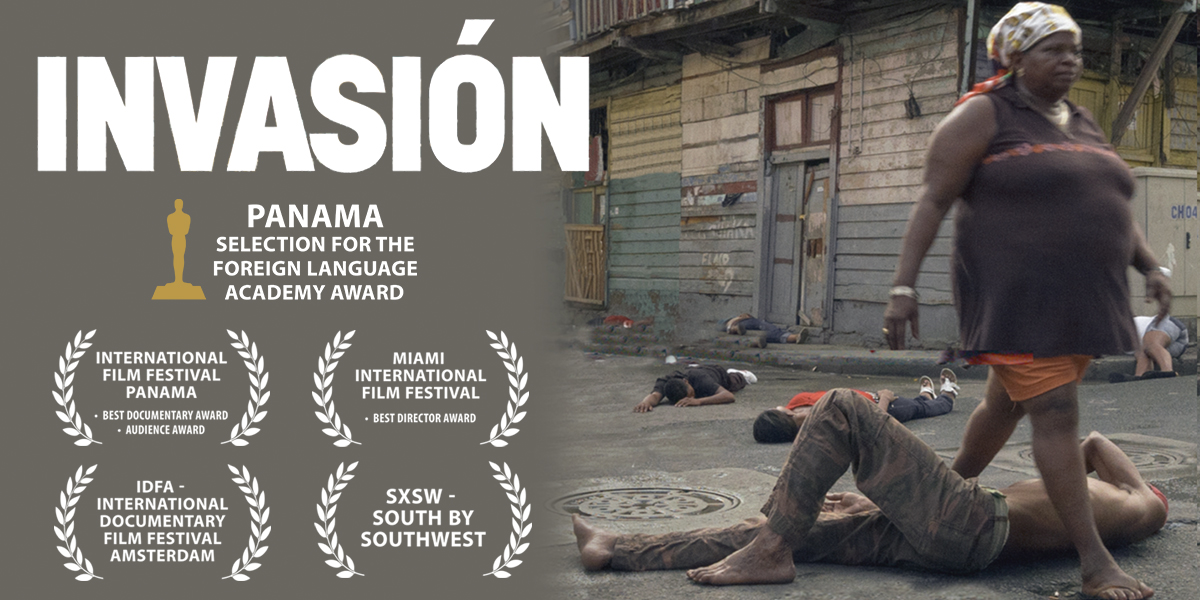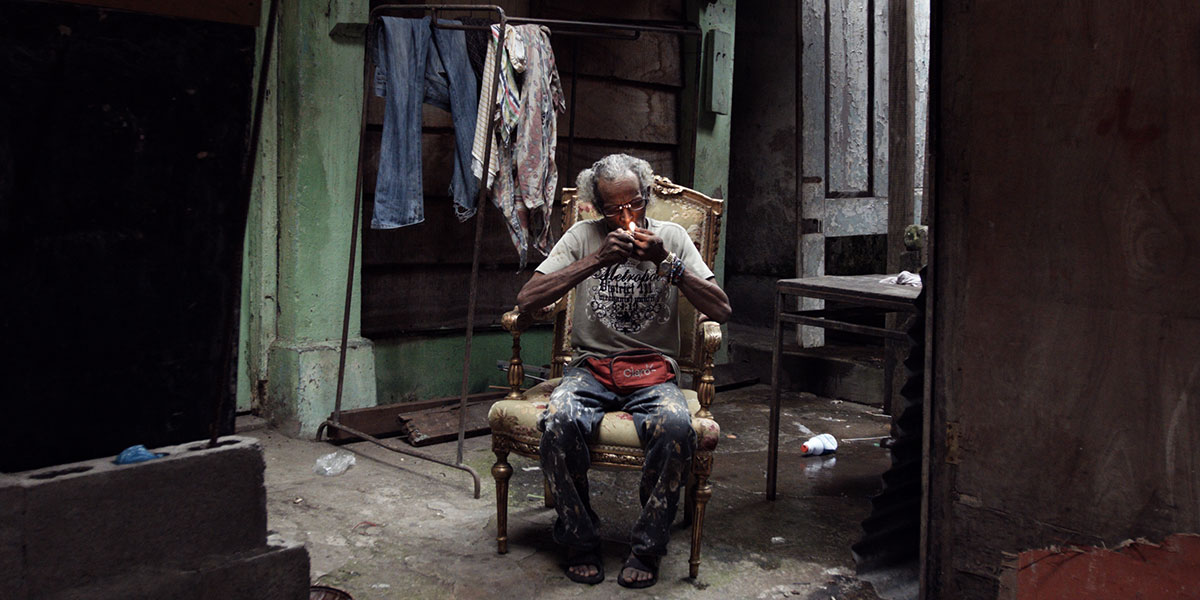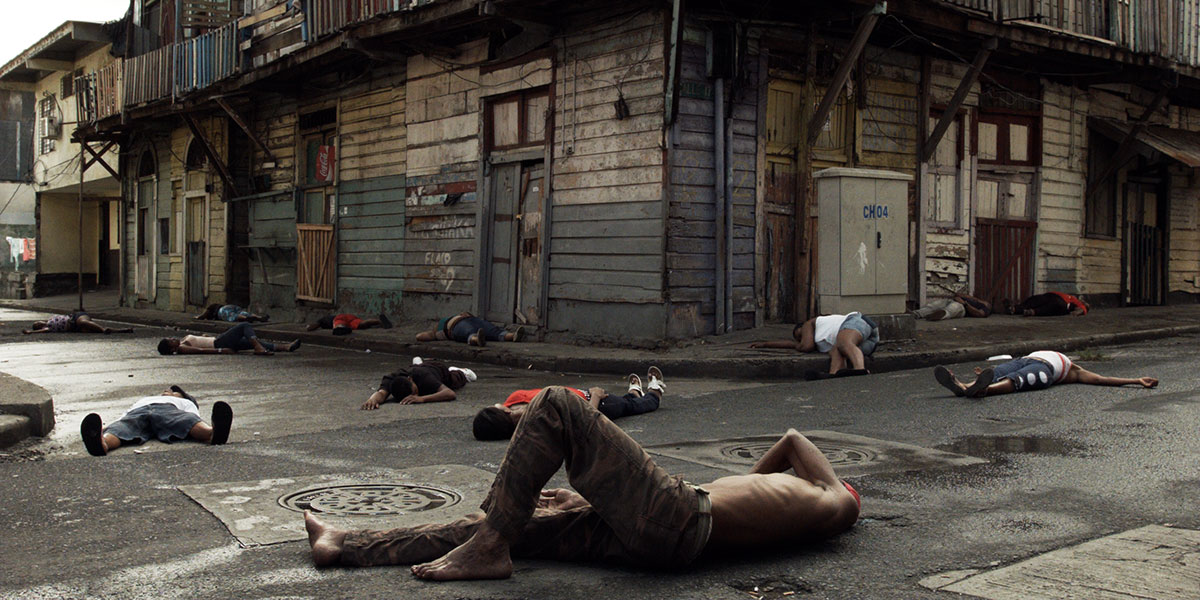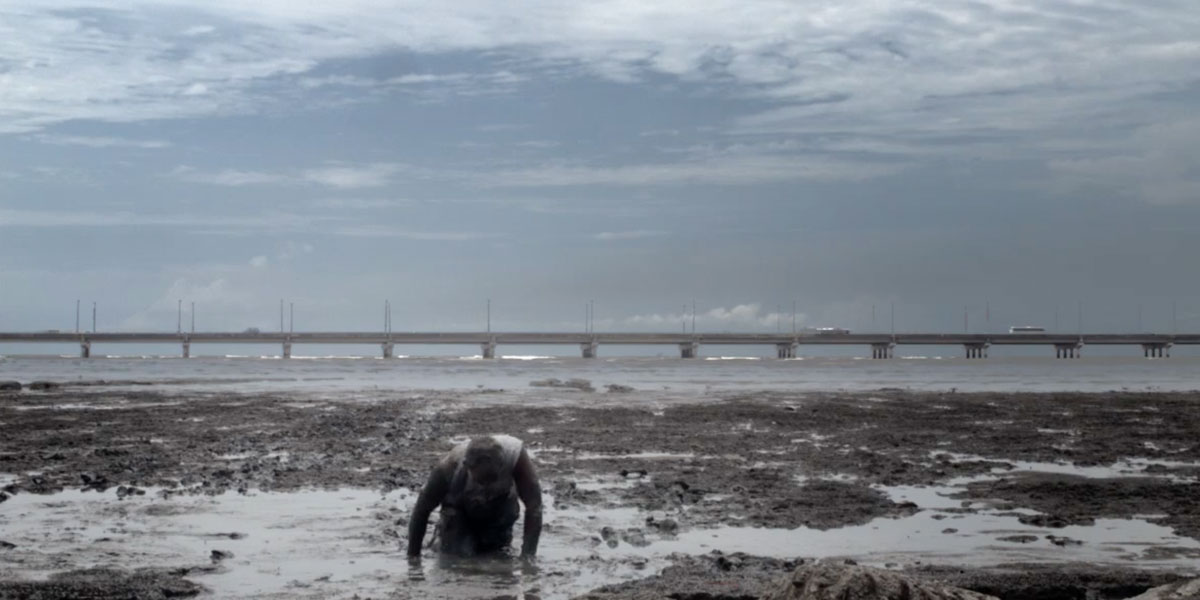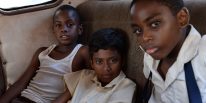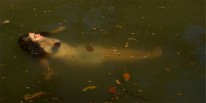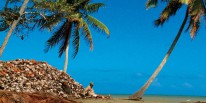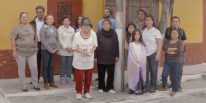ACADEMY AWARDS® Panama Selection for Best Foreign Language Film
The invasion of Panama by the U.S in Christmas and New Year of 1989 – when American troops deposed dictator Manuel Noriega, killing an unknown number of civilians in the process- serves as an excuse to explore how a people remember, transform, and often forget their past in order re-define their identity and become who they are today.
Invasion documents the collective memory utilizing a combination of reenactments and interviews of the 1989 U.S. Invasion: Defense forces who fought symbolic battles, politicians who justify their actions, friends of the church, from civilians to former General Noriega.
Did the “gringos” bring democracy or destruction? Was Noriega a victim or a villain? Was he an anti-Imperialist or a CIA accomplice gone rogue? Was it about drug trafficking or arms dealing, or perhaps neither? Or does it really just boil down to the fact that the U.S. wasn’t ready to relinquish control of the Panama Canal? These questions, many of which go intentionally unanswered, constitute the first Panamanian attempt to reconcile with a national trauma that many Panamanians have been all too eager to forget.
